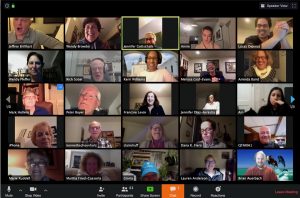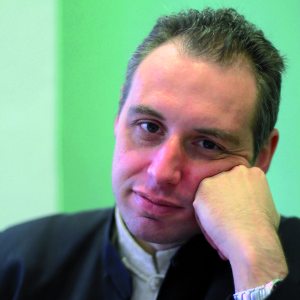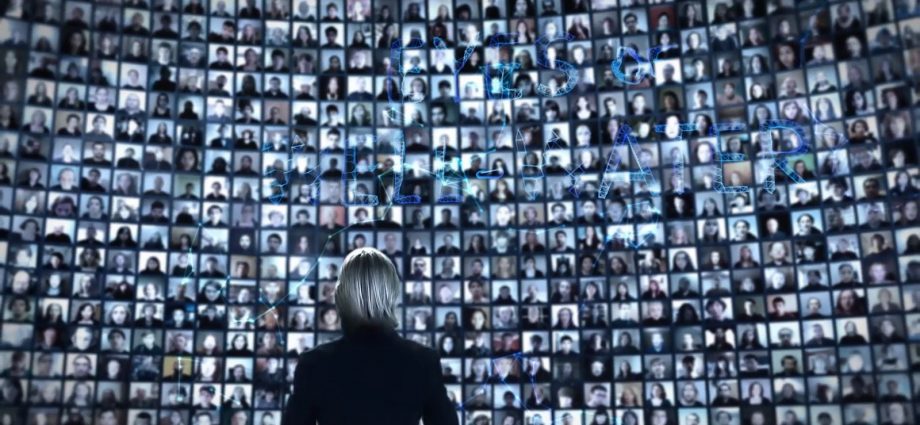par Aurelio Porfiri, compositeur, chef, écrivain et professeur
Depuis près de quarante ans je travaille avec des chorales et pratique la musique chorale. Assez longtemps pour pouvoir le dire : travailler avec des ensembles a occupé la majeure partie de mon existence. Et donc désormais, je dois réfléchir à la situation qui a été créée par la pandémie de coronavirus que nous traversons, une situation qui nous a tous surpris, rendus amers, effrayés, mais qui nous a aussi fait nous demander comment il sera possible de redémarrer, une fois ce cauchemar passé. Et nous ne sommes pas certains de savoir quand ce sera fini : les “experts” excellent à nous terrifier de jour en jour à petit feu.
Ce nouveau départ ne sera pas simple, car nous répugnons désormais à être trop proches les uns des autres, à nous exposer aux abominables gouttelettes de salive, et à risquer d’être infectés par quelqu’un qui ne présente même pas le moindre symptôme. Parce qu’en réalité, nous voyons maintenant tout cela comme des dangers potentiels, et nous en sommes aussi pour les autres. Du point de vue de la propagation possible du virus, chanter ensemble dans une chorale n’est pas l’activité la plus sûre : elle impose une proximité physique entre des personnes qui émettent des sons potentiellement porteurs des fameuses petites gouttelettes. Si vous chantez dans une chorale de 40 ou 50 personnes, comment pouvez-vous être sûr que tous ses membres seront à l’abri de ce virus ? Et puis il faut tenir compte du fait que – grâce à Dieu, d’un certain point de vue – dans beaucoup de nos chorales il y a pas mal de personnes âgées. Mais comment les protéger de quelqu’un qui pourrait involontairement, sans aucun symptôme, être porteur du coronavirus qui est beaucoup plus dangereux pour les personnes âgées, comme nous le savons maintenant ? J’ai vu que c’est un problème qui préoccupe en ce moment de nombreux chefs de chœur, qui tout à coup se sont retrouvés sans travail. Le problème va au-delà des personnes âgées : il touche également les jeunes qui peuvent être infectés et transmettre le virus à des membres de leur famille, plus fragiles en raison de leur âge et de leur état de santé.
Il y a deux mois seulement, ces questions auraient semblé absurdes. Et puis ce cataclysme a bouleversé toute notre vie et menacé de chambouler notre avenir. Nous ne pouvons pas ne pas penser à comment nous protéger jusqu’à ce que ce virus soit finalement vaincu, ce que nous espérons tous. Parce que nous ne voulons certainement pas arrêter l’ensemble de la pratique du chant choral, si importante pour beaucoup d’entre nous, non seulement du point de vue de louer Dieu pour certains, mais aussi quant à la socialisation pour d’autres. Comme je l’ai dit à plusieurs reprises, les chœurs sont de petites communautés où les amis se rencontrent, les gens rencontrent leurs futurs partenaires de vie et des gens qui deviennent des points fixes importants de leur existence. Certes nous ne voulons pas renoncer à tout cela, mais nous devons comprendre comment faire face au blocage psychologique qui a été créé au cours de ces mois où nous avons été terrorisés par l’idée que la proximité physique puisse être potentiellement dangereuse non seulement avec des étrangers, mais même chez nous.

J’ai eu connaissance de quelques tentatives de création d’un chœur virtuel, grâce aux possibilités offertes par la technologie. C’est certainement une chose à envisager, un type d’activité qui ouvre des perspectives très intéressantes pour l’avenir, un avenir où la technologie sera toujours plus présente dans notre quotidien. Mais ces nouvelles possibilités ne doivent pas entraver notre proximité avec les autres, notre capacité à rencontrer des gens et à chanter en étant côte à côte. Même si nous ne voulons pas l’admettre, nous avons vraiment besoin les uns des autres dans tous les aspects de notre vie : nous devons rencontrer les autres, rire ensemble, chanter avec les autres, parler avec eux. Nous sommes des animaux sociaux, et l’activité chorale n’échappe pas à cette loi. Nous devons donc réfléchir à la manière de continuer à faire ce qui a toujours été fait dans toutes les régions du monde, chanter ensemble et ressentir la beauté de la musique chorale au travers de créations artistiques, sans que le traumatisme qui nous est arrivé nous bloque les uns les autres. et sans que nos craintes deviennent un grave obstacle à la communauté avec les autres. Soyons honnêtes, à ce stade, ce n’est pas facile. Je ne sais pas si cela se produit aussi chez vous, mais ici, dans le centre de l’Italie où j’habite, même si le virus n’a pas fortement affecté ma ville, vous pouvez constater comment les gens font très attention à s’éviter, en pensant toujours que le danger peut être potentiellement partout. Nous sommes psychologiquement fortement affectés, et cela perdurera plus longtemps que le virus.
Nous devons en revenir à la rencontre avec les autres, nous devons trouver un moyen d’être ce que nous avons toujours été. Comme on le dit souvent, l’importance de certaines choses ne s’apprécie que par leur manque. Nous y sommes : le moment est venu de comprendre à quel point il était beau de rencontrer nos amis dans la chorale, de chanter avec eux, de pouvoir les rencontrer le dimanche pour le culte, pour un concert ou une expression chorale quelle qu’elle soit. Tout cela nous est actuellement complètement interdit et nous ne pouvons cacher le fait que cela nous manque, que nous voulons le retrouver. Nous ne pouvons pas donner le dessus au coronavirus ; nous ne pouvons pas tolérer qu’en 2020, un virus puisse dicter la manière dont toute la race humaine doit vivre ! Certes nous y voyons une éclipse temporaire, un moment où nous avons été pris par surprise et où notre société n’a pas réagi de manière adéquate. Mais nous devons essayer de comprendre comment rebondir, y compris dans le domaine de la musique chorale qui (ne l’oublions pas) concerne des millions de gens. Donc, moyennant toutes les précautions nécessaires efforçons-nous de passer outre ce moment terrible. La peur est mauvaise conseillère (Élisabeth Badinter,Ndt.). Mais si nous sommes obligés d’utiliser des masques par mesure de sécurité, ce sera un autre obstacle pour pouvoir reprendre notre activité chorale : chanter masqués, bien sûr ce n’est pas la même chose. Nous devons vraiment réfléchir à la façon dont nous pouvons sauver nos chorales sans mettre en danger les autres ni nous-mêmes. Pour l’instant ce n’est pas simple ; c’est même très compliqué, vu qu’à chaque minute nous sommes en proie à un flux constant de nouvelles alarmantes dont nous abreuvent les médias.
Nous ne permettons pas à la peur de nous enchaîner : nous sommes plus forts qu’elle, et le noble but de préserver l’activité chorale nous oblige à trouver des solutions créatives et efficaces, des solutions qui puissent être mises en œuvre en toute sécurité et de telle manière que personne ne se sente menacé par des dangers potentiels provenant de personnes innocentes. Au début ce ne sera pas facile : ce sera même très compliqué, car nous sortons d’une période d’épreuve très difficile où notre psychisme collectif a été soumis à une pression presque intolérable. Mais nous y arriverons, j’en suis sûr : au nom du respect que nous devons à nous-mêmes et à ceux qui nous entourent, nous devons y arriver.


Aurelio Porfiri est compositeur, chef, écrivain et professeur. Il a publié plus de quarante livres et mille articles. Plus d’une centaine de ses partitions sont éditées en Italie, en Allemagne, en France, aux États-Unis et en Chine. Courriel : aurelioporfiri@hotmail.com
Traduit de l’anglais par Barbara PISSANE (France), relu par Jean PAYON (Belgique)

